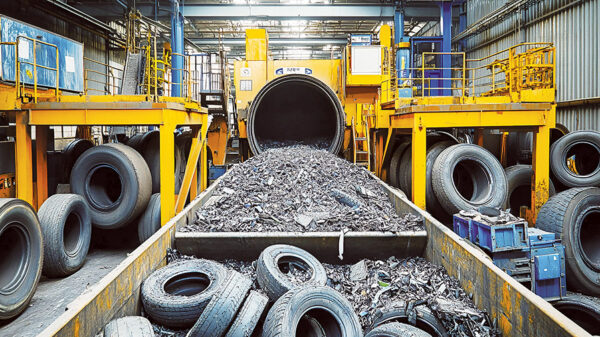Minnesota Attorney General Keith Ellison announced that he has filed a lawsuit against Reynolds Consumer Products, Inc., the parent company of the Hefty bag trademark, and Walmart for defraud-ing and deceiving Minnesota consumers through their marketing of so-called “recycling” bags. These bags are not in fact recyclable in Minnesota and render unrecyclable all materials placed within them, even items that would otherwise be recyclable. All recyclable items that consumers place into Reynolds and Walmart’s “recycling” bags end up at a landfill, contrary to consumers’ intentions.
Moreover, any “recycling” bag that makes its way into a recycling stream at any material recovery facility (MRF) in Minnesota can cause the sorting machinery to malfunction, cause fires, and result in unsafe conditions for workers who must crawl into the machinery to remove them.
The Attorney General’s Office alleges that Walmart and Reynolds are intention-ally misleading customers about the recyclability of their bags. Ellison said that Walmart’s Great Value recycling bags once claimed they were acceptable at many municipal recycling plants, though it has now taken that claim off the packaging.
“Plastic bags are not recyclable in our programs, and we don’t accept them — but we get lots of them anyway. They wrap around equipment making it less effective, contaminate and decrease the value of other material like paper, and cause safety hazards like fires. Additionally, when recyclable material comes in to our facility contained in a plastic bag, we have to throw it away because there is too much risk of injury for our employees to rip open the bags as they come across the line,” explained Lynn Hoffman, co-president of
Eureka Recycling, a non-profit Zero Waste social enterprise recycler. “It is a common misconception that plastic bags are recyclable, which is made even worse by false marketing claims. We appreciate Attorney General Ellison for seeking accountability for these harmful practices. “
Eureka Recycling estimates that “recycling” bags and other plastic bags in their recycling streams cost approximately $75,000 a year in lost productivity and lower revenue. These are costs that are passed on to all the residents of the municipalities Eureka serves.
Connecticut also sued Reynolds over its recycling bags. The Connecticut attorney general said the bags were not compatible with recycling facilities in the state.
Walmart in a statement said it relies on its suppliers to adhere to labeling requirements for its products.
“Walmart does not manufacture these items and look to our suppliers to provide quality products that comply with all applicable laws, including labeling requirements. We will respond in court as appropriate once we are served,” Walmart said.
Reynolds in a statement said it cannot comment on pending litigation.






